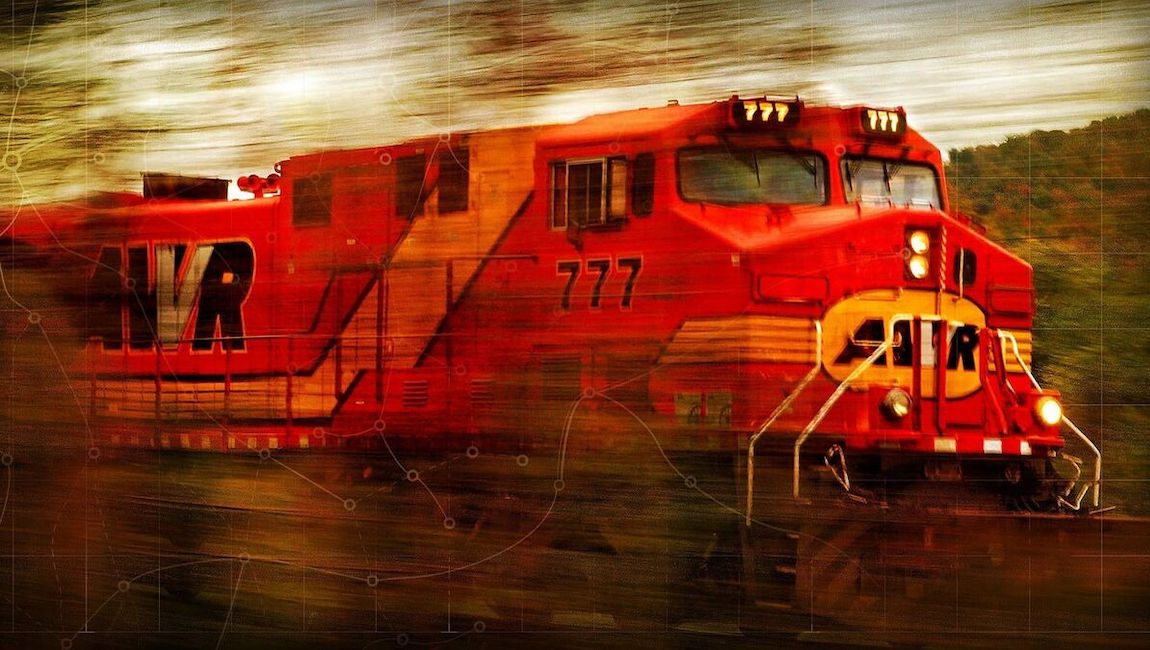Tony Scott is frequently written off as an arty hack, the kind of filmmaker who dashes off chintzy, salacious action pictures with a dollop of MTV accouterment. He even takes flack for the style now, too; ever since the deliberately aggressive and dissociative Domino, Tony’s style has been dismissed as “ADD,” which doesn’t really mean anything other than “I don’t like quick cuts.” While Scott may not be a classy director (he’s nothing if not unencumbered by good taste), it is reductive and foolish to label him stupid. His latest film, Unstoppable, is probably his most straightforward in 15 years, since at least the still-surprisingly-sturdy Crimson Tide, and also one of his best. It stars longtime collaborator Denzel Washington as a veteran railroad man, paired with a rookie conductor (Chris Pine) who actually outranks him due to some union business. As fate would have it, their first day on the job together coincides with a runaway train’s decision to break loose and head for a densely populated area where it will derail and explode, unleashing a delightful combination of flammable fuels and toxic waste on a Pennsylvania town.
There is, narratively, precious little else to Unstoppable; it proceeds at a furious pace for just over 90 minutes, during which time all manner of objects find themselves in the path of a hurtling locomotive, and it’s not likely to be thought a spoiler to learn the title is somewhat a case of false advertising. But it’s all handled with such old-fashioned skill that it reminds me of something Quentin Tarantino once said of Brian De Palma regarding the criminally misunderstood Raising Cain. I’m paraphrasing, but it was something along the lines of “Hacks don’t make movies this interesting.” So while not much unorthodox might be going on with the story of Unstoppable, it’s a quintessential example of both Hollywood craft and classic mainstream smuggling. As the train speeds toward its potentially nightmarish destiny, it’s trailed by cop cars, pickup trucks, helicopters, and TV cameras. It may seem quaint in today’s heavily CG-assisted world, but Tony shoots the hell out of this stuff. Choppers mere feet from speeding trains and spinning cop cars. Frail bodies flailing against inhuman, unblinking steel. All practical, all captured with long lenses which not only allow Scott to bring forth the scope of the circus but also to flatten the depth of field, bringing us closer to the danger. There are shots in this film where I felt like ducking underneath the helicopter blades as they hovered tightly, precariously above the speeding locomotive.
Further, many have noted the “proletarian” shadings in Unstoppable. Denzel’s job, along with those of his colleagues, has been traded away by stereotypical corporate bean-counters who are also reluctant to stop the runaway train effectively, preferring to try dangerous but cheap means while ignoring the advice of experienced, hands-on blue-collar workers. It’s an obvious metaphor, but the monster here isn’t merely a literal out-of-control machine, but an unleashed socioeconomic beast. The implication is not simply that evil corporations do bad things to helpless poor people; it’s not even the company’s fault that causes the initial problem but rather a lazy, clueless employee. No, Unstoppable is really saying that the corporations we’ve relied on to keep the beast in its cage have failed, and that it’s now up to experience, intuition, ingenuity, and common sense to remedy the situation.
The media plays a small but crucial role as well; most of the information the characters and audience receives comes from news reports, and Scott does not shy away from showing not only how vital the exchange of accurate information is to slowing a crisis, but also how easy it is to muddy the message given multiple points of view and limited access. The working class that the film insists we depend on cannot successfully perform their roles without detailed, accurate information, which as often as not is denied them by a media that would rather sensationalize a potential tragedy than illuminate and assess a looming one. Tony’s attempted to deal with these ideas before, most notably in his previous film, 2009’s strangely inert remake of The Taking of Pelham 1 2 3. It features the same blue-collar vs. bureaucracy conflict, the abstract bargaining of human lives for money, and the idea that the know-how of dedicated workers is an undervalued commodity. Unstoppable strips down the narrative, un-complicating it but not unloading the cargo. Despite what good taste (and some very good critics) might suggest to you, Unstoppable is not merely workmanlike, disposable entertainment. Indeed it’s spectacular entertainment made by a unique craftsman who’s refined his methods over a long career, the better able to slip an actual old-school message (however obvious) into his often unfairly ghettoized work.







